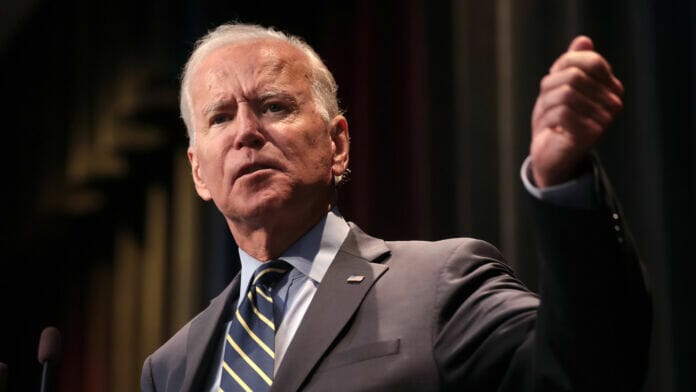by Kevin Seraaj, OrlandoAdvocate
A 16-hour marathon of debate and negotiations resulted last night in the U.S. Senate passing Joe Biden’s $750 billion climate, tax and health care spending package aimed at lowering health-care costs, raising taxes on corporations, reducing the federal budget deficit and injecting a historic burst of funding into efforts to combat climate change.
The proposed legislation would include the largest US investment on climate ever made– $370 billion aimed at producing a 40 percent drop in greenhouse gas emissions by 2030.
The bill– officially known as the “Inflation Reduction Act” — passed the Senate strictly along party lines with no Republican support. Vice President Kamala Harris’ tie-breaking vote overcame the 50-50 Democrt-Republican split and brought 18 months of frustration and negotiation to a favorable head.
The bill now heads to the House, which returns to session on Friday. It is expected to pass there and if it does, will be sent to President Biden for signature.
“[The bill] required many compromises,” President Biden said in a statement, after the Senate vote. “Doing important things almost always does. The House should pass this as soon as possible and I look forward to signing it into law.”
Passage by both houses would give Biden a clear victory on one of his top agenda items and go a long way toward restoring US leadership in meeting the global climate challenge.
Republican lawmakers criticized the bill, which would provide Americans with a tax credit of up to $7,500 when purchasing an electric car, plus a 30 percent discount when they install solar panels on their roofs, as wasteful spending. The legislation would also provide millions to help protect and conserve forests — which have been ravaged in recent years by wildfires scientists say are linked to global warming.
Liberal Democrats were not happy with portions of the bill– particularly the billions of dollars in tax credits that will go to some of the country’s worst-polluting industries to help their transition to more green methods of operation.
The new law, if passed by the House, will also make major changes to health policy by giving Medicare the power for the first time to negotiate the prices of certain prescription drugs and extend expiring health care subsidies for three years. It will be paid for through new taxes — including a 15% minimum tax on large corporations and a 1% tax on stock buybacks. It will also boost the Internal Revenue Service’s ability to collect those new taxes.


